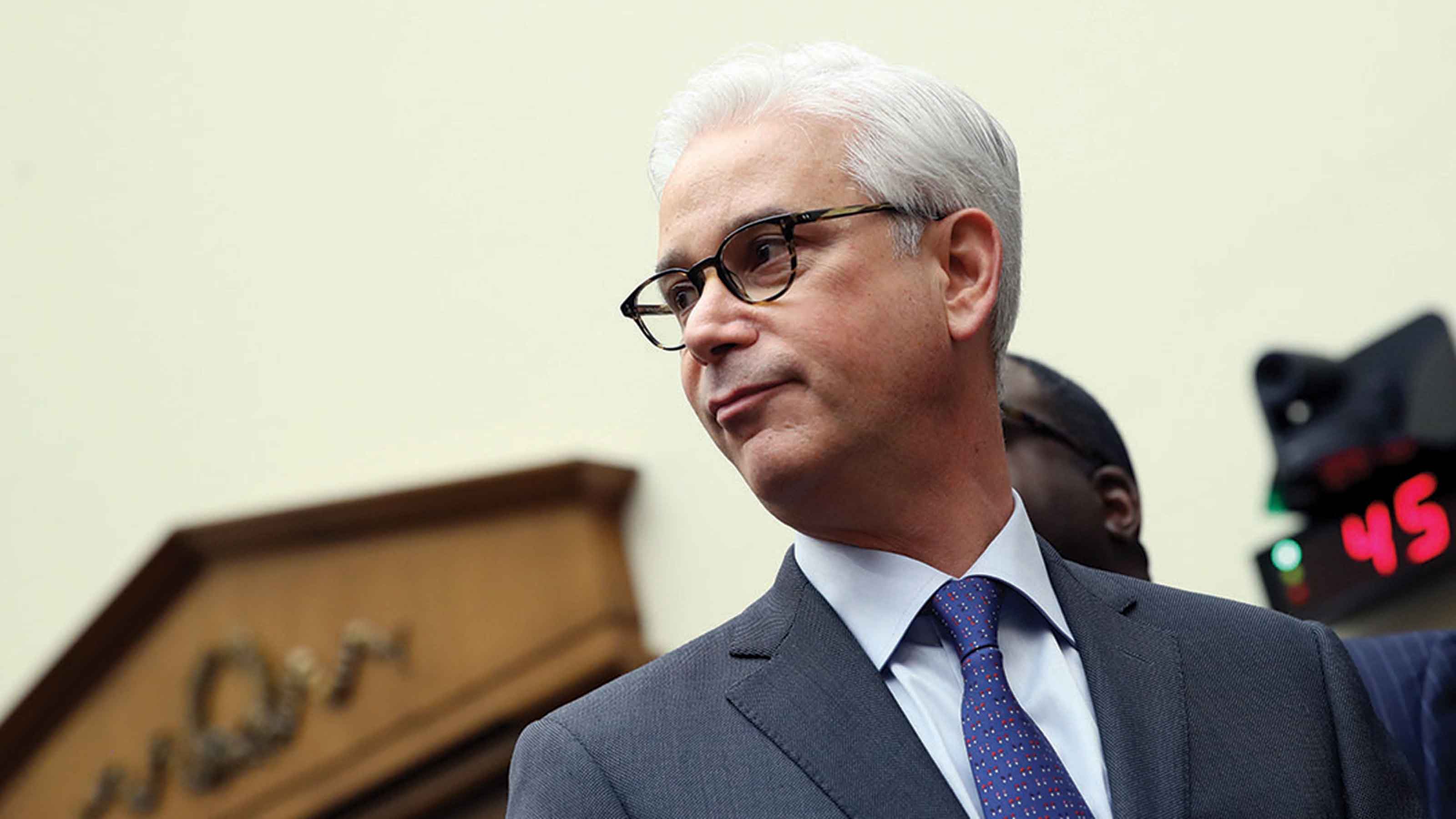Obama's Warren Move Muddies Waters
The president’s decision to make Elizabeth Warren a special assistant rather than head of the new consumer bureau skirted a nasty Senate battle, but it means more uncertainty for firms and consumers.

Profit and prosper with the best of Kiplinger's advice on investing, taxes, retirement, personal finance and much more. Delivered daily. Enter your email in the box and click Sign Me Up.
You are now subscribed
Your newsletter sign-up was successful
Want to add more newsletters?

Delivered daily
Kiplinger Today
Profit and prosper with the best of Kiplinger's advice on investing, taxes, retirement, personal finance and much more delivered daily. Smart money moves start here.

Sent five days a week
Kiplinger A Step Ahead
Get practical help to make better financial decisions in your everyday life, from spending to savings on top deals.

Delivered daily
Kiplinger Closing Bell
Get today's biggest financial and investing headlines delivered to your inbox every day the U.S. stock market is open.

Sent twice a week
Kiplinger Adviser Intel
Financial pros across the country share best practices and fresh tactics to preserve and grow your wealth.

Delivered weekly
Kiplinger Tax Tips
Trim your federal and state tax bills with practical tax-planning and tax-cutting strategies.

Sent twice a week
Kiplinger Retirement Tips
Your twice-a-week guide to planning and enjoying a financially secure and richly rewarding retirement

Sent bimonthly.
Kiplinger Adviser Angle
Insights for advisers, wealth managers and other financial professionals.

Sent twice a week
Kiplinger Investing Weekly
Your twice-a-week roundup of promising stocks, funds, companies and industries you should consider, ones you should avoid, and why.

Sent weekly for six weeks
Kiplinger Invest for Retirement
Your step-by-step six-part series on how to invest for retirement, from devising a successful strategy to exactly which investments to choose.
President Obama admittedly faced a tough choice. He wanted to name Elizabeth Warren, a Harvard law professor and consumer advocate, to head the newly created Consumer Financial Protection Bureau, and his liberal supporters were urging him to do just that. But Obama doubted he could win what was sure to be a long and angry Senate confirmation fight.
With Republicans poised to make gains in November and uniformly opposed on the grounds Warren would be unfairly tough on companies, a stalemate seemed likely. In the end, Obama sidestepped the issue in what’s regarded either as a cheap political move or his best practical option, depending on one’s political leaning.
In her new role, Warren’s task will be to research financial products, develop a complaint response system and figure out how the bureau can supervise risk at nonbank companies. That will put her in a position to shape the agency she is credited with conceptualizing, a fact that has her supporters cheering.
From just $107.88 $24.99 for Kiplinger Personal Finance
Become a smarter, better informed investor. Subscribe from just $107.88 $24.99, plus get up to 4 Special Issues

Sign up for Kiplinger’s Free Newsletters
Profit and prosper with the best of expert advice on investing, taxes, retirement, personal finance and more - straight to your e-mail.
Profit and prosper with the best of expert advice - straight to your e-mail.
“Finally getting the author of the concept in place to make sure it is implemented correctly, instead of having bureaucrats set it up, is a step in the right direction,” says James Wells, president of Wellspring Consulting in Fort Lauderdale, Fla.
But Warren’s appointment to an advisory role raises a lot of unanswered questions. Most importantly, how much power will she actually have?
“The most interesting aspect is going to be on rulemaking,” says Bert Ely, bank consultant and principal of Ely & Co. “I have big questions about that because [the Dodd-Frank Wall Street law] makes specific references to the director. The director has broad authority and can prescribe rules, but she’s not the director.”
Who actually gets the nomination for the five-year term as the bureau’s first director may hinge on November elections. If Republicans pick up more than a few Senate seats, Obama will “have to appoint a more moderate person,” Ely says, or resort to a recess appointment, which would expire in late 2012.
Also in question is Warren’s ability to recruit staff to the agency without knowing who the permanent director will be. “She’s not going to get it staffed,” Ely predicts. “People are not going to take a position not knowing who the director will be.”
The Consumer Financial Protection Bureau will get existing staff members from various agencies as it tries to consolidate consumer protection laws, including the Real Estate Settlement Procedures Act of 1974 and Truth in Lending Act of 1968, but that transfer isn’t scheduled to take place until next year.
Obama identified July 21, 2011, as the official transfer date for authorities granted by the new law, along with any staff transfers from other government agencies. The new bureau will also become responsible for banks with assets totaling more than $10 billion on that date.
But Warren isn’t going to be sitting on her hands for the next 10 months.
Warren, along with Treasury Secretary Timothy Geithner, is already tackling disclosure forms for credit cards and mortgages. “Fine print obscures the cost of credit and makes it impossible for families to compare products,” Warren said at a September forum. “Streamlined disclosure can level the playing field and give families better tools to make better choices.”
Warren and Geithner are helped by the enactment of other recent legislation, including the CARD Act, which requires credit card issuers to provide new customers with a one-page agreement summary of terms instead of pages upon pages of fine print outlining the offer.
It also addressed some of the predatory practices of credit card companies, including marketing to college students and retroactive interest rates. In addition, the bureau will monitor changes to debit card overdraft protection, which went into effect in August. “She will endeavor to make sure those things on overdrafts and credit cards are being adhered to,” Wells says.
Uncertainty remains over the longer term implications of the Consumer Financial Protection Bureau, and push back over the agency as a whole continues to come from the financial industry.
The Independent Community Bankers of America says it “will work with Ms. Warren to continue urging stricter scrutiny over nonbank financial firms,” but says community banks “should not be saddled with new regulatory burdens.”
Profit and prosper with the best of Kiplinger's advice on investing, taxes, retirement, personal finance and much more. Delivered daily. Enter your email in the box and click Sign Me Up.

-
 Betting on Super Bowl 2026? New IRS Tax Changes Could Cost You
Betting on Super Bowl 2026? New IRS Tax Changes Could Cost YouTaxable Income When Super Bowl LX hype fades, some fans may be surprised to learn that sports betting tax rules have shifted.
-
 How Much It Costs to Host a Super Bowl Party in 2026
How Much It Costs to Host a Super Bowl Party in 2026Hosting a Super Bowl party in 2026 could cost you. Here's a breakdown of food, drink and entertainment costs — plus ways to save.
-
 3 Reasons to Use a 5-Year CD As You Approach Retirement
3 Reasons to Use a 5-Year CD As You Approach RetirementA five-year CD can help you reach other milestones as you approach retirement.
-
 Airbnb Host Tells What It's Like
Airbnb Host Tells What It's LikeBusiness Costs & Regulation This Denver pharmacist began booking her ski condo a few months after the pandemic hit.
-
 Tough Times for a Family Business
Tough Times for a Family BusinessBusiness Costs & Regulation His dry-cleaning operation was rocked by the pandemic, but he is staying optimistic.
-
 IRS Gives Truckers a Tax Break in Response to the Colonial Pipeline Shutdown
IRS Gives Truckers a Tax Break in Response to the Colonial Pipeline ShutdownTax Breaks The tax penalty for using dyed diesel fuel for highway use is temporarily suspended.
-
 Reliving a Harlem Renaissance
Reliving a Harlem RenaissanceBusiness Costs & Regulation After a tough winter, two sisters look forward to reviving their restaurant’s business.
-
 Add a VPN to Surf the Internet Safely
Add a VPN to Surf the Internet SafelyTechnology To help you fight identity theft, consider adding a VPN.
-
 Stephanie Creary: Making the Case for Diversity on Corporate Boards
Stephanie Creary: Making the Case for Diversity on Corporate BoardsBusiness Costs & Regulation Adding underrepresented voices can improve a company’s bottom line.
-
 Kiplinger's 2020 Election Forecast
Kiplinger's 2020 Election ForecastPolitics For nearly a century, The Kiplinger Letter has forecasted the outcome of presidential elections to keep readers informed of what's coming and what it means for them. Here's our call for 2020.
-
 How We Lose When We Overlook Black Talent
How We Lose When We Overlook Black TalentBusiness Executives Comments from Wells Fargo CEO Charles Scharf (pictured) reflect a culture that tramples on clients’ trust and limits opportunities for people of color.